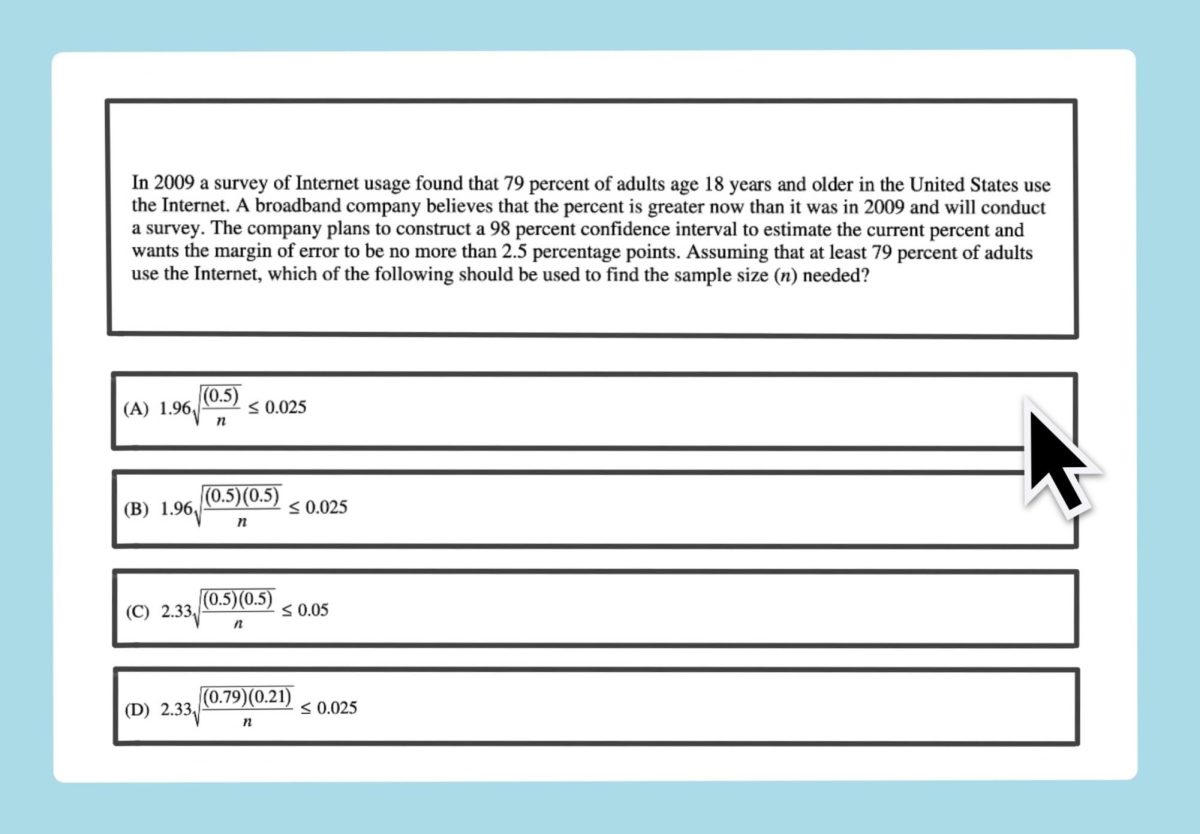Nine AP Exams will be taken on paper for the last time this May. College Board announced that starting in 2025, paper exams will only be permitted for students with approved accommodations requiring paper testing.
Next year, AP Computer Science Principles, AP English Language and Composition, AP English Literature and Composition, AP European History, AP Seminar, AP U.S. History and AP World History: Modern are the eight exams Midtown students will have to take online, as well as AP African American Studies, which Midtown will not offer next year. College Board plans to add more subjects for online exams each year.
“Each year, we’ll announce the exam subjects that will go digital in the next school year and the subjects expected to go digital in the following school year,” College Board said in a statement. “We expect the following additional subjects to go digital in May 2026: AP Art History, AP Comparative Government and Politics, AP Computer Science A, AP Human Geography, AP Latin [and] AP United States Government and Politics.”
College Board gave school districts the choice to decide if they want to administer 2024 exams on paper or electronically. Midtown chose to administer all exams on paper this year, according to Phoebe Chung, testing coordinator.
“I think [we chose to administer all exams on paper] because it’s not consistently digital across the board,” Chung said. “Only some AP exams are currently available in the digital format, most are still on paper. So, it made more sense for us to be consistent and stick with all paper or all digital.”
Online exams are administered through a testing application from College Board called Bluebook. College Board said that online exams will alleviate the setbacks from paper exams.
“Digital exams are the future of AP testing,” College Board said. “They remove the need to manage paper exam booklets on exam day and reduce the risk of exam security issues and lost exam responses.”
AP World History and Gifted Mentorship/Internship teacher Kelly Wren has heard negative feedback about the online exams, particularly the writing portions.
“Most people think that when [the exams are] computerized, students will write the essays faster,” Wren said. “But, what I’ve actually heard from colleagues that are already giving this exam on the computer is that students are still not finishing on time because they’re finding it easier to erase and restart, and it’s taking them unexpectedly longer.”
Wren said students second-guess themselves more when they are typing, leading them to take longer to write essays.
“It takes a long time to [physically] write an essay, but once you’ve written it down, it’s really difficult to go back and change,” Wren said. “So, you tend to try to adjust and go forward, and you’re not second-guessing. You might cross something out, but you’re not starting completely over. But, when you’re typing, it’s a lot easier to start over, so students are second guessing themselves a lot more.”
Sophomore Taryn Thompson is taking AP U.S. History next year. She anticipates difficulties with the AP U.S. History exam being online due to the negative effects of looking at a screen for long periods of time and not being able to utilize paper.
“I don’t like [having exams available only online] because you can’t annotate the texts [as thoroughly],” Thompson said. “And I read better on paper because online, there’s blue light coming from the screen, which gives me a headache. I feel like forcing everyone to take exams online is going to have a negative effect on people’s grades.”
However, sophomore Kameryn Brown says there won’t be a dramatic change in the AP Computer Science Principles test, as much of the curriculum, as well as the final project, is already online.
“I don’t think that moving the Computer Science Principles to fully online will make that big of a difference,” Brown said. “Pretty much half of our test is already online with our separate project that we have to do, making the code segment.”
But, for the AP World History exam, Wren predicts the online exam will have mixed results. For the multiple choice questions, she likes the side-by-side format the online exam utilizes. But, for the sections heavy with documents and writing, she finds the annotation tool is less effective than physically writing and grouping the documents.
“I like that they have the timer so you can easily see how much time you have,” Wren said. “I also like that it has the individual questions side by side with the stimulus. I think my only negative feedback is in relation to the DBQ [Document Based Question]. I don’t think that the [online] annotation feature is very intuitive, so I’m not sure if that’s going to be as helpful. It’s harder when you can’t put your hands on the documents to annotate and group them.”















